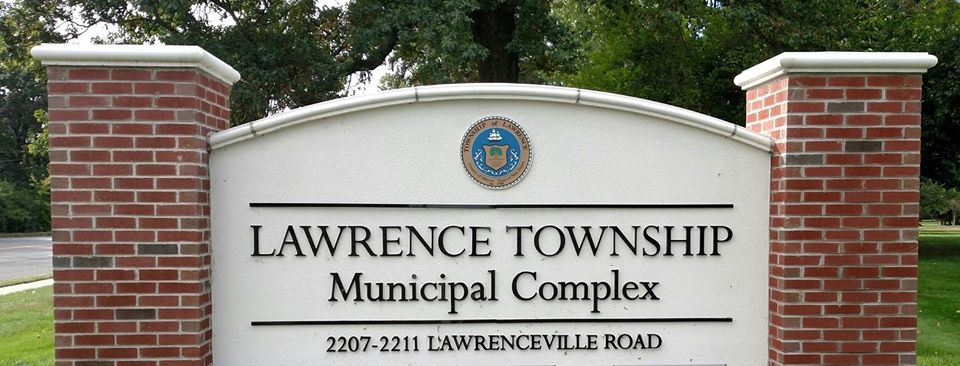The road to women’s suffrage, or the right to vote, did not run smoothly.
It was full of bumps, especially in New Jersey, where women had the right to vote, lost the right to vote and then won it back again.
Lawrence Township Historian Brooke Hunter outlined the history of women’s right to vote, in recognition of the 100th anniversary of the 19th Amendment, at the Lawrence Historical Society’s annual meeting Feb. 23.
Hunter also touched on women’s involvement in civic life in Lawrence Township – from the establishment of the Lawrence chapter of the League of Women Voters to election of the seven women who have served on the Lawrence Township Council since the 1970’s.
Women in New Jersey were granted the right to vote under the New Jersey State Constitution that was adopted in 1776, said Hunter, who teaches history at Rider University.
The 1776 State Constitution stated that “all inhabitants” who were worth at least 50 pounds (money or property) and who had lived in the county for at least 12 months were eligible to vote.
A 1790 law referred to voters as “he or she,” Hunter said. It applied to residents of the seven counties – Bergen, Burlington, Gloucester, Hunterdon, Monmouth, Salem and Sussex – that made up New Jersey.
The 1790 law stated that “no person shall be entitled to vote in any other township or precinct in which he or she doth actually reside at the time of the election.”
“For a long time, historians argued that it was a mistake – that they forgot to say that voting was restricted to ‘men.’ Only recently, historians have decided it was intentional,” Hunter said, referring to “he or she.”
The practical effect was that in 1786, three women were qualified to vote in Maidenhead Township, which was Lawrence Township’s original name. In 1789, four women had qualified to vote and by 1799, it had grown to five women. Almost all of the women were widows who had inherited assets from their husbands.
But in 1807, the New Jersey Legislature passed a new law that restricted the right to vote to free, white male citizens, Hunter said. It stripped away the right to vote from women.
“Why did women lose the right to vote? Partisan politics. In the 1780’s, there was no vision of partisan politics,” she said. But there was growing concern that each of the political parties would bring out people to vote for them. It was also hard to prove that a voter had assets worth 50 pounds.
By imposing limits and restrictions on who was eligible to vote, Hunter said, “problem solved.”
But voting rights took another turn, when it was decided in 1887 that women could vote in school board elections, Hunter said. That’s because women were intimately involved in their children’s education.
Women’s right to vote in school board elections was short-lived, however. The New Jersey Supreme Court ruled in 1894 that only white men could vote, based on the 1844 New Jersey State Constitution.
Meanwhile, a national movement was under way to grant women the right to vote, Hunter said.
Woman suffragettes used various strategies in their fight for the right to vote – should women’s voting rights to handled on a state-by-state basis, or should there be an amendment to the U.S. Constitution?
Several states had granted women the right to vote, but eventually it came down to the need for a Constitutional amendment, Hunter said. Congress passed the 19th Amendment granting women the right to vote in 1919, and sent it to the states for ratification.
New Jersey was the 29th state out of the 36 states need to ratify it, which it did on Feb. 10, 1920. The amendment was ratified in August 1920. Tennessee was the 36th state to ratify it.
Gaining the right to vote led women to become involved in Lawrence Township civic life and politics, with the election of Della Nash to become the Lawrence Township Municipal Clerk in 1938, according to Hunter. Until that time, all of the municipal clerks were men. The post is now an appointed one.
Ratification of the 19th Amendment also led to the formation of the League of Women Voters. It was created immediately after ratification to help women exercise their newfound right to vote.
The Lawrence Township chapter of the League of Women Voters was established in 1964, around the time that it began to evolve into a suburban bedroom community. Most chapters of the League of Women Voters had been found in the cities, Hunter said.
The Lawrence chapter of the League of Women Voters led women to become more engaged in the civic life of the town, Hunter said. It sponsored a “candidate’s night” for voters to meet the local candidates, and its members also studied national and local issues.
It was the League of Women Voters’ emphasis on women’s civic involvement that contributed to the late Gretel Gatterdam’s decision to run for the Lawrence Township Council. She became the first woman mayor in the township in 1984, Hunter said.
Gatterdam was the second woman elected to the Lawrence Township Council. She followed in the footsteps of the late Mary Tanner, who was the first woman to be elected to the council in 1976. Seven women have served on the Lawrence Township Council.
Hunter also pointed to state Senator Shirley K. Turner (D-Mercer/Hunterdon). She had served on the Lawrence Township Zoning Board of Adjustment, the Mercer County Board of Chosen Freeholders and the state Assembly, and was elected to the state Senate in 1998.
“The legacy for Lawrence Township is largely coming from these women,” Hunter said of Nash, Tanner, Gatterdam, Sen. Turner and the other women who have served on the Lawrence Township Council.

